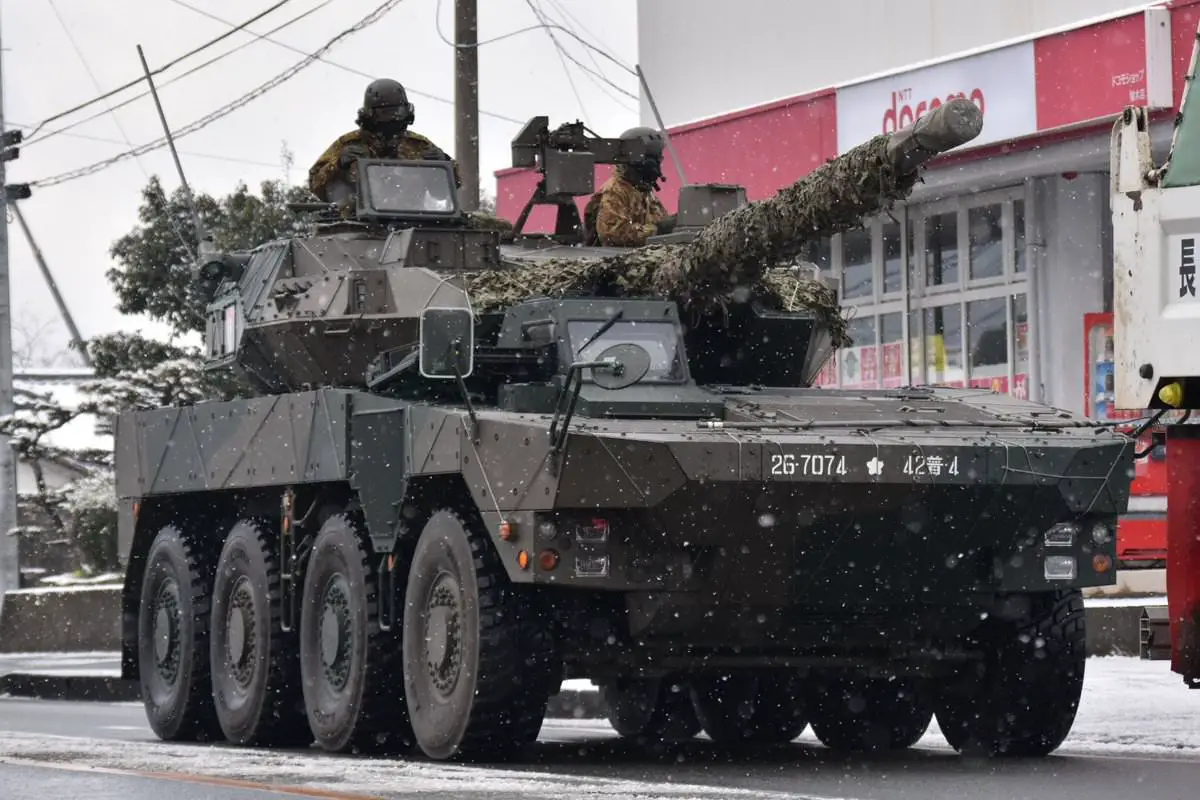The Japan Ground Self-Defense Force (JGSDF) plans to induct approximately 230 Type 16 manoeuvre combat vehicles (MCVs). The Japan Ministry of Defense plans to acquire 33 Type 16 MCVs for JPY23.4 billion (USD190.9 million) in 2022. Under the fiscal year (FY) 2021 budgetary document, the Japan Ministry of Defense plans to induct 22 Type 16s worth JPY15.8 billion, and under the FY 2020 budgetary document. The Japan Ground Self-Defense Force (JGSDF) is also requesting 33 Type 16 Maneuver Combat Systems (MCV) worth JPY27.3 billion, also known as a Japanese twenty-first-century tank destroyer, according to document entitled Defense Programs and Budget of Japan in 2020.
In 2020, Mitsubishi Heavy Industries (MHI) secured a contract to build prototypes of three new variants of the Type 16 MCV: a new infantry combat vehicle (ICV), a reconnaissance combat vehicle (RCV), and a manoeuvre mortar combat vehicle (MMCV) based on the 8×8 MCV. The contract was signed on 20 December 2019, with delivery of the prototypes to the JGSDF expected to be completed by March 2022. Very few details have emerged about the new variants, but Janes reported that the MMCV will be capable of firing 120 mm mortar rounds, while the ICV variant will be equipped with a battle management system that will enable it to work closely with the MCV.

The Japan Ministry of Defense’s (MoD’s) Acquisition, Technology & Logistics Agency (ATLA) has awarded Mitsubishi Heavy Industries (MHI) on 20 December 2019, with delivery of the prototypes to the JGSDF expected to be completed by March 2022. JGSDF aims to develop a family of Type-16-based vehicles under a project called “Common Tactical Wheeled Vehicles”, meaning that the new 8×8 vehicles will have similar dimensions and components, although the new variants are expected to weigh less than the 26 tonnes of the MCV. The Type 16 maneuver combat vehicle (Hitoroku-shiki kidou-sentou-sha) is a wheeled tank destroyer of the Japan Ground Self-Defense Force.
The Type 16 maneuver combat vehicle (MCV) equips designated combat units. Due to its light weight and small size, it is designed for easy deployment (by aircraft if needed) allowing rapid movement on narrow roads and in built-up areas in response to various contingencies. Despite its small size and light armor, it can successfully attack much larger armored fighting vehicles as well as personnel, using its large caliber gun. The intention is for the MCV to act as both as a rapid reaction asset against conventional incursions on the outer islands and as a counter-insurgency vehicle against asymmetrical attacks in urban areas of Japan by enemy special forces, intelligence operatives, or their proxies.













